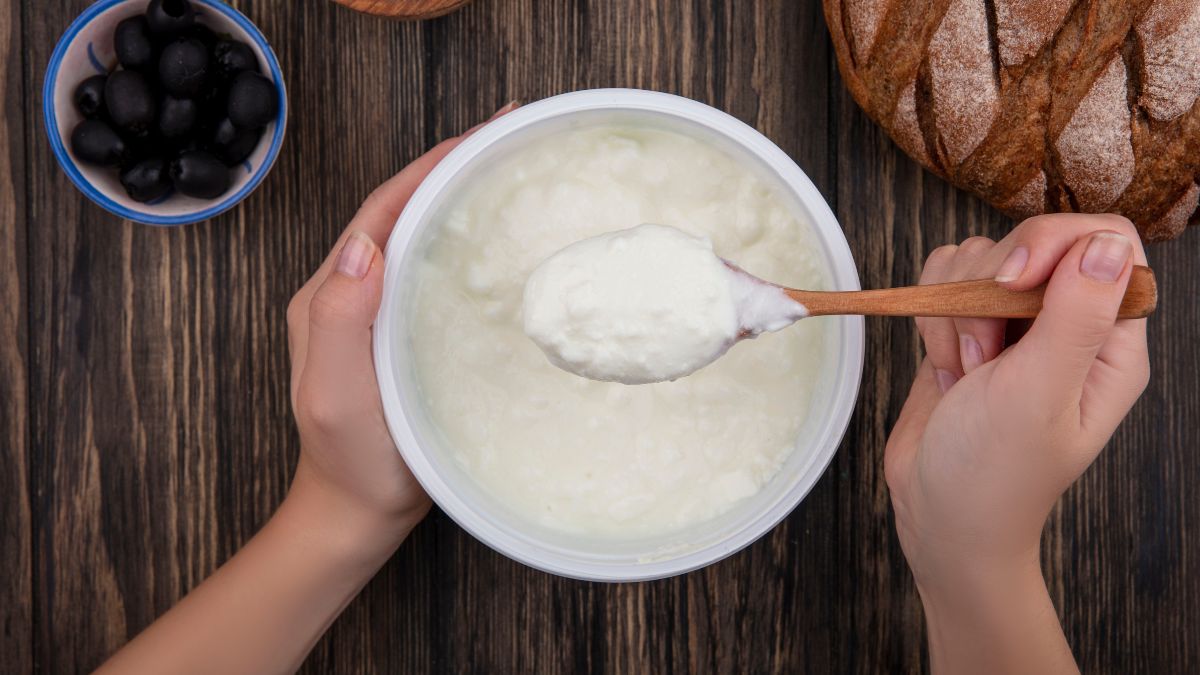

Curd, also known as dahi, is a widely consumed dairy product that acts as a timeless digestive solution. In an interaction with the OnlyMyHealth team, Ayurvedic expert Dr Kriti Soni, Head of R&D, Kapiva, says, “In many Indian households, it is not just a delightful accompaniment to meals but is deeply rooted in Ayurvedic traditions.” In this article, she discusses not just the benefits of having curd, but also the right way to consume it, as per Ayurveda.
Benefits Of Curd As Per Ayurveda
.jpg)
According to the Indian Journal of Medical Research, curd is a good source of bioavailable vitamins, minerals and folate, with lower amounts of lactose and galactose than milk. The study further suggests that consumption of curd may enhance the immune response in the elderly.
Also Read: Ayurvedic Doctor Shares Weight Loss-Friendly Foods To Eat
As per Ayurveda, Curd’s natural probiotics promote gut health, aiding in digestion and preventing constipation, says Dr Soni, adding that Ashtanga Hridayam, a foundational Ayurvedic text, suggests that curd boosts strength and promotes muscle tissue formation.
How To Consume Curd The Ayurvedic Way
.jpg)
While consuming curd, Dr Soni recommends following certain Ayurvedic approaches. These include:
Dosha consideration: Curd is primarily beneficial for Vata dosha due to its unctuous and sour qualities. However, its cold nature can aggravate Kapha, and its sourness can disturb Pitta. Thus, understanding one’s Prakriti (constitution) is crucial.
Time of day: Ayurveda’s classic text, Charaka Samhita, recommends consuming curd during the daytime, especially at lunch when the digestive Agni is robust.
Seasonal consumption: Curd is best avoided during the monsoon and winter seasons, especially at night, as it can lead to mucus formation. However, it’s beneficial during the summer due to its cooling properties.
Enhancing curd’s potency: Adding a pinch of black pepper or cumin powder can mitigate the Kapha-increasing properties of curd. This combination aids digestion and prevents mucus accumulation.
Avoid incompatible foods: Ayurveda warns against the simultaneous intake of curd with sour fruits, milk, or melons. Such combinations can lead to digestive issues and toxin formation.
Also Read: Potli Massage Therapy: Expert Explains How It Works And Its Benefits
Safety Tips
According to Dr Soni, overconsumption of curd can lead to issues like indigestion, skin eruptions, and anaemia. Anaemia is a condition wherein your blood produces very low amounts of Red Blood Cells (RBCs). Therefore, it’s essential to consume it in moderation.
“In essence, curd is a treasure trove of benefits, but like all Ayurvedic recommendations, its consumption should be tailored to individual needs, considering one’s dosha, the season, and daily routine,” she concludes.
اكتشاف المزيد من ينبوع المعرفة
اشترك للحصول على أحدث التدوينات المرسلة إلى بريدك الإلكتروني.
